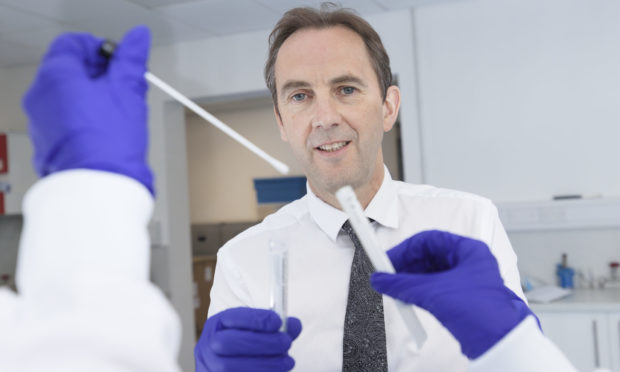A new Covid-19 test invented by an Aberdeen man’s company could help speed up the re-opening of shared spaces in hospitals, care homes, schools and offices.
The kit, which is the first of its kind in the UK, works by detecting traces of the virus on hard surfaces.
It can also measure how many RNA molecules have been left behind by the disease – providing guidance as to which areas require more thorough cleaning.
Additionally, higher levels of coronavirus found could suggest which spaces are used by the population more than others – in turn highlighting a higher risk of transmission.
This would work beyond the “obvious” high-risk areas such as handrails and trolley handles, and flag up frequently-used touch points which may be overlooked during cleaning.
The test has been developed by Andersen Caledonia, which is led by former Harlaw Academy pupil Jonathan Lintott.
He later graduated with a degree in engineering from Oxford University and set up the firm, which specialises in sterilising medical instruments and microbial testing.
Mr Lintott said: “This is a test that helps the public take back control of their lives.
“This innovation is significant as it assures users that a public space is clear of any infection.”
Each test costs between £100 and £200 and will initially provide results within 48 hours.
The firm is expecting these to be bought in volume from businesses and the public sector, allowing the price and overall processing times to fall.
One swab can be used multiple times and can detect traces of the virus down to 100 “strands” of coronavirus.
A sample taken from a human who has tested positive for Covid-19 typically contains 600,000.
Mr Lintott added: “The test works by looking for the RNA of coronavirus in very small quantities left on surfaces.
“Moreover, identifying where virus particles accumulate in shared spaces means businesses can target cleaning, in turn saving time and money in the eradication of the presence of virus to their site.
“As the economic impact of life with Covid-19 continues to rise, the test provides a vital tool to end lockdown and preventing a second wave.”
